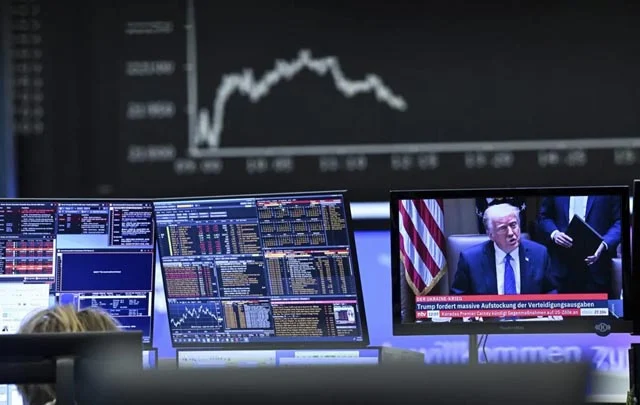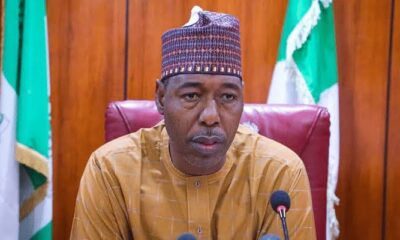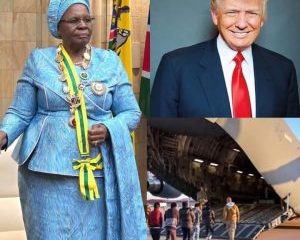Economy
Petrol to sell at N935 per litre from today-IPMAN

The Independent Petroleum Marketers Association of Nigeria (IPMAN), says the price of petrol will drop to N935 per litre by Monday in view of Dangote Refinery’s new arrangement.
IPMAN said the new price was necessitated by the reduction in Dangote Refinery’s fuel ex-depot price and uniform arrangement, which would enable marketers to sell at N935 in their outlets nationwide.
Alhaji Maigandi Garima, IPMAN National President, who made this known on Sunday in an interview with the News Agency of Nigeria (NAN) in Abuja, lauded the Dangote refinery for the development.
NAN reports that Dangote refinery recently announced a significant reduction in fuel price by 7.27 per cent from N970 per litre to N899.50 per litre at its loading gantry and provided generous credit terms to marketers.
In the bid to ensure that the price reduction gets to the end consumers, it signed a partnership with MRS to sell petrol from its retail outlets nationwide at N935.
The price reduction which is designed by Dangote refinery to alleviate transport cost during the festive period and beyond, has already commenced in Lagos, and will be offered nationwide from Monday.
“Dangote refinery has brought another new arrangement of loading and pricing by which marketers would pay a fixed ex-depot price of N899. 50k.
“The refinery is running a programme whereby it wants the fuel consumption across the country to be at the same rate. We are expecting the new arrangement to kick-start on Monday.
“We have been loading from the Dangote refinery and the refinery is saving us in this festive period,’’ he said.
The IPMAN president said previously it was loading at N970 per litre at Dangote refinery, but based on the arrangement and promise from Dangote, by Monday fuel price will drop to N935.
Garima said the downstream sector competition being witnessed currently was expected by marketers since due to deregulation, adding that it would see the price of fuel dropping continuously.
“That is the reason why we have been asking the government to allow private sectors to participate in the refinery business.
“Very soon more refineries are coming up and the country will see a lot of price reduction in the downstream sector,’’ he said.
He recalled that during the 2023 yuletide, per litre of fuel was sold at N2, 000 in the Northern and Eastern part of the country because fuel was being imported at that period.
He added that the highest price of which fuel could be sold there currently is N1, 100 because refineries are running in the country.
“By the time Warri and Kaduna resume production, one can buy products at cheaper rates and it is good for the economy,’’ he added.
He however commended the Naira for the crude swap deal, adding that it is a good development for the growth of the economy.
The NNPC Ltd. had also slashed fuel ex-depot price from N1, 020 to N899.
The fuel price reduction reflects response to deregulation and increased industry competition.
(NAN)
Economy
SEE Current Black Market Dollar (USD) To Naira (NGN) Exchange Rate

The exchange rate between the US dollar and the Nigerian naira continues to draw significant attention from individuals and businesses alike, especially those involved in international trade and remittances.
On Saturday, April 12, 2025, activity in the Lagos parallel market, commonly known as the black market shows that the buying rate for one US dollar stands at ₦1570, while the selling rate is ₦1575.
These figures are sourced from traders and Bureau De Change (BDC) operators who are active in key currency exchange hubs across Lagos.
Why the Black Market Rate Matters
Although the Central Bank of Nigeria (CBN) does not officially recognize or support the use of the black market for foreign exchange transactions, many Nigerians still rely on it due to difficulties in accessing forex through official banking channels. Issues such as limited availability, long processing times, and strict documentation requirements have made the black market a more accessible, albeit riskier, alternative.
CBN’s Official Position
The CBN continues to warn against participating in parallel market trading, stating that such activities undermine the stability of the national currency. The apex bank urges those in need of foreign currency to apply through authorized financial institutions, which are mandated to follow official exchange rates.
Nonetheless, the disparity between the official and unofficial markets persists, often influenced by market forces such as demand, inflation, and fluctuations in Nigeria’s foreign reserves.
Latest Exchange Rates Overview
Black Market (Parallel Market) Rate
Currency Pair Buying Rate Selling Rate
USD/NGN ₦1570 ₦1575
CBN Official Rate
Currency Pair Highest Rate Lowest Rate
USD/NGN ₦1630 ₦1570
Key Notes for Forex Users
The exchange rates in the black market often differ slightly from one location or dealer to another due to market volatility and negotiation margins.
Rates can also fluctuate within hours based on economic news, government policies, and global financial trends.
It is advisable to compare rates from multiple sources before conducting any large transactions, especially in volatile markets.
What This Means for Nigerians
The current forex rates reflect continued pressure on the naira, and many analysts believe that inflation, reduced oil revenue, and inconsistent monetary policies are key factors driving the demand for the dollar. For everyday Nigerians, this means the cost of imported goods remains high, and businesses dependent on international suppliers face growing challenges.
Until forex supply stabilizes through official channels, the black market will likely remain a major player in Nigeria’s currency landscape.
Economy
CHECK Exchange Rate As Naira Weakens More In Parallel Market

Naira has continued its downward slide in the parallel market on Thursday, exchanging at N1,621/$1, a depreciation from N1,580/$1 recorded just a day earlier on Wednesday.
This represents a N41 decline in 24 hours, deepening concerns among traders and economic watchers about sustained volatility in the FX market.
While the official exchange rate stood at N1,644.00/$1 on Wednesday, according to figures published on the Central Bank of Nigeria (CBN) website, there was no updated official rate published by the CBN several hours after the market close on Thursday.
Meanwhile, market participants at Wuse Zone 4 in Abuja attributed the persistent depreciation to a resurgence in speculative activities, unmet demand from importers, and lingering confidence issues in the foreign exchange market.
Alhaji Aminu Gwadabe, President of the Association of Bureau De Change Operators of Nigeria (ABCON), attributed the ongoing volatility in the forex market to a mix of local and global uncertainties. In a message sent to Nairametrics, he stated:
“The volatility, fears, happenings, and shocks in both the local and international markets called for disdain.
President Trump’s tariff announcements have sent markets into panic, loss of confidence, revenue losses, and budget reviews.”
He added that despite ongoing interventions by the CBN, instability persists.
“As usual, the CBN, being a catalytic actor, must continue to ensure stability through timely interventions. However, volatility remains a challenge and needs to be more comprehensively addressed,” Gwadabe said.
He further called for an expanded policy transmission mechanism to better serve the retail end of the FX market.
“It is therefore necessary for the CBN to reevaluate the efficacy of that Policy transmission mechanisms and expand its scope to the BDCs retail segment of the market to cater for the needs of the critical retail needs of invisible transactions where the BDCs pose the most potent tool of the CBN policy transmission mechanism.”
Dr. Muda Yusuf, CEO of the Centre for the Promotion of Private Enterprise (CPPE), also linked the naira’s recent struggles to global developments and speculative pressures.
“This is not unconnected to recent policy signals from President Trump and global oil price movements. The market is heavily information-driven, and speculative pressure has spiked following the tariff announcements,” Yusuf explained.
“Now that Trump appears to be having second thoughts, we might even see a bit of a breather in the FX market,” he added.
Meanwhile, traders on the ground say the situation is being worsened by the uncertainty surrounding ongoing government reforms and inconsistent access to official FX windows.
“The demand today was unusually high, especially from small businesses that can’t access the banks. It’s putting pressure on our supply,” a trader at Abuja’s Wuse Zone 4, who asked not to be named stated.
The spread between the official exchange rate of N1,644/$1 and the parallel market rate of N1,621/$1 narrowed slightly on Thursday, a sign that some convergence may be taking place, despite persistent volatility.
Market analysts warn that unless the CBN resumes consistent interventions or significantly boosts FX liquidity, the naira may continue to face downward pressure in the weeks ahead
The continued slide of the naira, despite heightened CBN interventions, signals persistent challenges in Nigeria’s FX liquidity and structural demand-supply mismatch.
Economy
Asian stocks jump as Trump postpones painful tariffs

Stocks rocketed Thursday as a relief rally spread through markets after Donald Trump paused crippling tariffs on US partners, with Chinese markets even brushing off his decision to ramp up duties on Beijing to 125 percent.
The across-the-board gains tracked a blistering performance on Wall Street as the US president said he would delay for 90 days measures announced last week that set off a firestorm on trading floors and sparked global recession fears.
Trump said he would keep in place a basic levy of 10 percent on dozens of countries but upped the ante in his brutal trade war with superpower rival China by hitting it even harder after it retaliated.
China’s own 84 percent retaliatory measures kicked in at 0401 GMT Thursday, later saying that US tariffs would “severely impact the stability of the global economic order”.
Trump made the decision because he said investors were “jumping a little bit out of line” as markets collapsed and US Treasuries — considered the safest option in times of crisis — were also showing signs of cracking on concerns about the world’s top economy.
People “were getting yippy, a little bit afraid”, he added, referring to a term in sports to describe a loss of nerves.
The extra tariffs on Beijing, however, were “based on the lack of respect that China has shown to the world’s markets”, Trump said.
The president denied he had made a U-turn, telling reporters that “you have to be flexible”.
And his top trade advisor, Peter Navarro, said, “This will go down in American history as the greatest trade negotiating day we have ever had.
“We’re in a beautiful position for the next 90 days, we’ve got over 75 countries that are going to come in and negotiate with us and what they’re going to have to do, without fail, is they’re going to have to lower their non-tariff barriers.”
Trump’s shock announcement on his Truth Social network sparked a buying frenzy as Asian and European investors chased beaten-down stocks.
“Asia markets are flipping the switch — from fear to euphoria — as Trump throws a 90-day lifeline, pausing the reciprocal tariff barrage,” said Stephen Innes at SPI Asset Management.
“The president’s post nodded to the ‘yippy’ reaction to his historic hikes, and honestly, that sums it up.
“We just witnessed one of the all-time bouncebacks — and now, we look for Asia investors, much like their North American counterparts, to step in and buy the ‘yips’.”
Hong Kong rallied more than two percent — a third day of gains after collapsing more than 13 percent on Monday in its worst day since 1997 during the Asian financial crisis. Shanghai gained more than one percent.
The two markets have been given extra support by optimism that China will unveil fresh stimulus to support its economy in light of the tariff measures. Official data showing another drop in consumer prices last month added to those hopes.
– ‘Fear to euphoria’ –
Tokyo’s Nikkei surged more than nine percent, while Taipei’s 9.3 percent gain was its best rise on record — after Monday’s 9.7 percent drop represented its worst fall.
Seoul, Singapore, Jakarta, Sydney, Saigon and Bangkok climbed between four and 6.6 percent. Manila and Wellington were also well in the positive territory.
London, Paris and Frankfurt soared at the open.
Tech firms were the standout performers, with Sony, Sharp, Panasonic and SoftBank chalking up double-digit gains, while airlines, car makers and casinos also enjoyed strong buying.
Apple suppliers posted strong rallies — Hong Kong-listed AAC Technologies surged 5.6 percent and in Taiwan, Hon Hai added almost 10 percent.
Gold surged almost three percent to around $3,120 — around $50 short of its record touched last month — thanks to the weaker dollar and as the uncertainty saw investors rush into the safe haven.
Chihiro Ota, at SMBC Nikko Securities, said: “What happens now? If the US takes a hardline stance (in negotiations), then the market would be disappointed. If it turns out that they can engage in talks, then it may create a room for (an upswing).”
US Treasury yields also edged down after a successful auction of $38 billion in notes, said Briefing.com.
That eased pressure on the bond market, which had fanned worries that investors were losing confidence in the United States.
However, observers warn that the China-US standoff could be another step towards a disengagement from the world’s top two economies.
“The escalation of the trade war between the US and China suggests that a full trade decoupling is increasingly likely,” said Mali Chivakul, emerging markets economist at J. Safra Sarasin bank.
“Even if we may see a de-escalation later, a decoupling could still be the result.”
Trump’s trade war is also causing a headache for the US Federal Reserve as it weighs whether to cut interest rates to protect the economy, or keep them elevated to ward off the inflation many say tariffs will fuel.
Minutes from its March meeting, released Wednesday, showed members felt they “may face difficult tradeoffs if inflation proved to be more persistent while the outlook for growth and employment weakened”.
Oil prices edged down after bouncing more than four percent Wednesday, though they remain under pressure amid concerns about the global economy and its impact on demand.
– Key figures around 0715 GMT –
Tokyo – Nikkei 225: 9.1 percent at 34,609.00 (close)
Hong Kong – Hang Seng Index: UP 2.7 percent at 20,804.08
Shanghai – Composite: UP 1.2 percent at 3,223.64 (close)
London – FTSE 100: UP 6.1 percent at 8,145.26
Dollar/yen: DOWN at 147.05 yen from 147.82 yen on Wednesday
Euro/dollar: UP at $1.0968 from $1.0948
Pound/dollar: UP at $1.2875 from $1.2810
Euro/pound: DOWN at 85.20 pence from 85.45 pence
West Texas Intermediate: DOWN 0.6 percent at $62.00 per barrel
Brent North Sea Crude: DOWN 0.7 percent at $65.04 per barrel
New York – Dow: UP 7.9 percent at 40,608.45 (close)
AFP
-

 News13 hours ago
News13 hours agoAutonomy: 774 LGs challenge FG, states in court Tuesday
-

 Sports23 hours ago
Sports23 hours agoJust in: Newcastle pummel Man United 4-1
-

 News6 hours ago
News6 hours agoRivers women rally in support of state of emergency
-

 News23 hours ago
News23 hours ago2027: Atiku’s Opposition Front is a mission impossible-Wike declares
-

 News12 hours ago
News12 hours agoZulum orders arrest, offers house, scholarship to abused boy in viral video
-

 News6 hours ago
News6 hours agoJust in: Namibia Moves to Deport Over 500 Americans in Bold Visa Policy Shift
-

 News24 hours ago
News24 hours agoChristian Chukwu’s Death A Monumental Tragedy— Hon Nnaji
-

 News14 hours ago
News14 hours agoNANS criticize NASS over proposed bill to fine, jail non voters


















